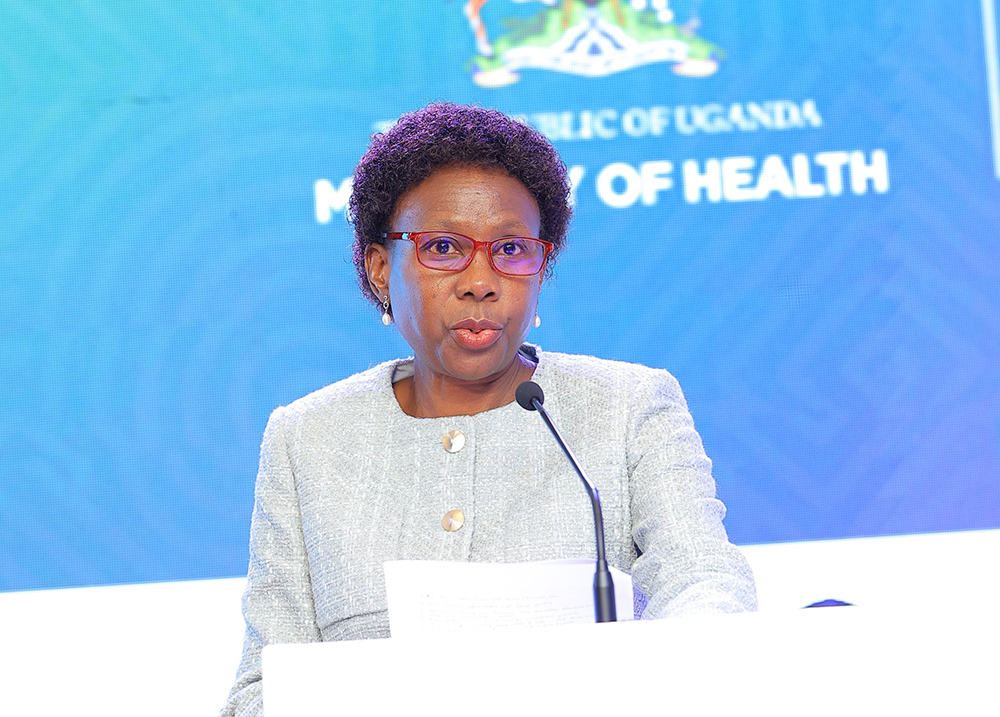Copyright newvision

Aceng calls for unified action as Uganda moves to integrate CDs, NCD services Aceng made the call on November 5, 2025, while speaking at the opening of the three-day National Annual Communicable and Non-Communicable Diseases and 19th Joint Scientific Health Conference at Speke Resort Munyonyo in Kampala. Minister of Health Dr Jane Ruth Aceng delivering her remarks at the Speke Resort Munyonyo on November 5, 2025. (Courtesy photo) Share: Our WhatsApp Channel __________________Health minister Dr Jane Ruth Aceng Ocero says there is urgency for unified action in fighting communicable diseases (CDs) and non-communicable diseases (NCDs), a growing double burden of disease in Uganda.“Health promotion and disease control are not the responsibility of the health sector alone, but require active collaboration across sectors,” she said.Aceng made the call on November 5, 2025, while speaking at the opening of the three-day National Annual Communicable and Non-Communicable Diseases and 19th Joint Scientific Health Conference at Speke Resort Munyonyo in Kampala, held under the theme: Unified Action Against Communicable and Non-Communicable Diseases.The conference aimed to explore the linkages between CD and NCDs and develop actionable recommendations to eliminate priority diseases and advance health equity.Delivering a keynote address, Dr Queen Dube from the World Health Organisation (WHO) headquarters echoed the call for a multisectoral approach.“Most causes of ill-health lie outside the health sector. CDs and NCDs share risk factors, co-morbidities, and often compete for the same resources. Integration is not just logical, it’s essential,” she noted.Enablers of integrationConference deliberations, according to a WHO statement released on November 6, 2025, led to consensus on four key enablers for integration:Breaking Silos by dismantling operational barriers between CD and NCD programs through innovative, evidence-based, and locally tailored solutions.Harmonising Systems, by aligning health systems, interoperable data platforms, coordinated supply chains, and integrated workforce training.Prioritising Prevention by promoting public awareness and early prevention alongside curative care for both CDs and NCDs.Investing in Primary Health Care (PHC) by embedding services for HIV, TB, malaria, and related comorbidities into PHC and community-based services.Health ministry permanent secretary Dr Diana Atwine integration is feasible, noting that what has been lacking is the language and determination. “The science is well known, and the practice is clear. Even with minimal resources, we can do it,” she said.What are NCDs and why you should care?NCDs are also known as lifestyle diseases because their risk factors are linked to how people live.The Minister of Health, Dr Jane Ruth Aceng and the ministry's permanent secretary Dr Diana Atwine, pose for a photo with delegates at the conference. (Courtesy photo)A total of 33% of deaths annually in Uganda are due to non-communicable diseases (NCDs), according to the World Health Organisation, and for every Ugandan, the probability of dying prematurely from one of the four main NCDs is 22%.The risk factors include leading a sedentary lifestyle, unhealthy diets, overconsumption of alcohol and smoking.NCDs include diabetes, high blood pressure, chronic obstructive lung disease and cancer. Such diseases are not transmissible from person to person but instead develop over time. They are also chronic and do not have definite cures, although they can be managed.The Uganda National Panel Survey 2018 and the Uganda Demographic and Health Survey show that Ugandans are becoming heavier (overweight and obese) as a nation.“It is also quite alarming to see from the data that 41% of non-pregnant women aged 15-49 have a high waist circumference above the cut-off that is considered healthy. This is a sign of abdominal adiposity, which is a key predisposing factor for diabetes, cardiovascular diseases and cancers, which in turn are strong drivers of NCD morbidity and mortality, which stands at 35% of all reported deaths,” health ministry commissioner of NCDs Dr Charles Oyoo Akiya said last year during a related conference in Kampala.



